Balancing diplomacy, reform and competitiveness

Bangladesh is one of the youngest nations on the planet. The recent political changes in the country have offered us an opportunity to rethink, revisit, reevaluate, and rebrand the competitiveness of Bangladesh. This is highlighted by the Chief Adviser Muhammad Yunus's visit to the Summit of the Future 2024 in New York. The support of the world leaders to an 84-year-old statesman who needed no introduction at the UN was overwhelming. His speeches, handshakes, hugs, presentations, meetings, receptions, and photo sessions were good public relations for a two-month-old government. Perhaps, we are entering a new era of diplomacy.
As we bring stability, restructure governance, and work towards an impartial election, let us add another task to the list—enhancing Bangladesh's global competitiveness. It is a long-term venture guided by clear goals, pragmatic policies, persistent efforts, and patriotic leadership. The contemporary competitiveness of China is an outcome of the policies laid by Mao Zedong and Zhou Enlai 75 years ago. Lee Kuan Yew's Singapore and Mahathir Muhammad's Malaysia took 30 years to get to where they are now. Even Nelson Mandela did not live to see the outcomes of his policies in South Africa.
The ultimate goal of national competitiveness is the wellbeing (both material and spiritual) of its citizens achieved through a dynamic process of wealth creation and distribution that delivers reasonable income/prosperity to its people. This can be attained by addressing the following factors: (i) understanding the core competitiveness of a nation; (ii) evaluating its geopolitical positioning; (iii) building appropriate institutions; (iv) attaining resource synergy; and (v) providing dynamic leadership. A model competitive country does not have to be rich or powerful—fulfilling the basic needs of the people should be a reasonable goal for success.
Understanding core competitiveness
The core competitiveness of Bangladesh is tied to our culture. It is the unique story of organic growth grounded on the survival spirit of the people. Apparently chaotic, it is actually a harmonious evolution. Time and again, through unity and cooperation, the people of Bangladesh have been able to rise above all odds, be it during cyclones/floods or against tyrants who have tried to subdue our aspirations. A desperately optimistic and patriotic survival spirit is our innate core. This makes us a very blessed nation.
I am convinced that tyranny in any form is not sustainable in Bangladesh. Every time we have despaired about a tyranny, a resilient survival spirit for freedom has resurfaced, a united natural leadership crystallised from the street, and a divine intervention has occurred. Our youth have spearheaded these movements in 1952, 1969, 1971, and many a times during the post-liberation period, including 2024.
The absolute power grabbing attempts and divisive politics have hurt us but could not destroy our spirit. The fall of Awami League, BNP, and Ershad regimes should be good learning for our ambitious political and military leaders. The spirit of the nation should be allowed to blossom through a democratic process; that should be the moral imperative of this government.
Geopolitical position of Bangladesh
Bangladesh's geopolitical situation is complex. The country, home to 170 million people, is situated in the low-lying Ganges delta, which presents significant geographical challenges. Moreover, India controls most of the rivers flowing south into Bangladesh, and our short border with Myanmar, has led to a significant Rohingya refugee crisis. These challenges have forced us to become pragmatic, resilient, and creative.
Evaluating the geopolitical position of Bangladesh begins with our neighbours. So far, we have maintained a good relationship with SAARC members and should continue to do so. The Modi government's support to dictatorial regimes like Hasina goes against the Gandhi/Nehru doctrines. Opposition leader Rahul Gandhi's maiden speech in the parliament indicates that his policies are failing. There were demonstrations in support of our 2024 student-led movement in India.
Bangladesh is perceived as a young, friendly, and peace-loving nation. It is observable in the UN peace missions, international trade/investment engagements, and NGO participations. We should continue to maintain this positive image, ensuring that foreigners feel safe here for both trade and travel.
On the diplomatic front, we should maintain good relationships with our Asian neighbours including China, Korea, and ASEAN countries. The good PR of the Yunus government has enhanced our image in the West/European Union. We should continue to promote good business relationships with them. We should continue to maintain a good relationship with Russia—a country that has built our only nuclear power plant and filled our military hardware—and other countries of the world. Bangladesh can augment its peace-loving image/position by proactively engaging in Global South diplomacy via SAARC and other platforms. Yunus and future leaders can join the non-aligned movements following the footsteps of Maulana Bhashani.
Building appropriate institutions
Building institutions for competitiveness is a cultural phenomenon. It evolves over time through an educative process that offers market efficiency, human freedom, and good governance. It facilitates the process of wealth creation and wealth distribution. The current reform and restructuring efforts of the government are positive endeavours in institution building.
In assessing the institutional efficacy for national competitiveness, one can consider the six elements of the Worldwide Governance Indicators (WGI) of the World Bank as follows: voice and accountability; political stability and absence of violence; government effectiveness; regulatory quality; rule of law; and control of corruption. A country that scores well in these indicators is perceived to be better grounded for international trade, investment, and competitiveness. Most developing countries in the world seriously lag behind in these indicators. Bangladesh is no exception.
To score better on WGI, our first step would be to make electoral democracy work. We almost succeeded in establishing our style of democracy through a caretaker system until Hasina abandoned it. Dynasty politics, like many developing countries, is an institutionalised phenomenon. It is a reality in Bangladesh. A recent poll after the 2024 uprising indicates that common people would welcome a new party. In India, a new Aam Aadmi Party, an anti-corruption force, was able to gain a good foothold because of the integrity of India's electoral process. We are yet to develop such a system/culture. This is where we need reform.
Attaining resource synergy
Resources are finite and tied to the geography of a nation. Resources are given, and they can also be created. In a globalised world, a country's resources are tied to an international value chain defined by a broader core-periphery economic relationship. Developed countries benefit most from this network because of their colonial past, currency, political arrangement (UN, WTO, IMF, WB, etc.), and military power. Developing countries do not have much choice under the current system.
Attaining resource synergy is a long-term proposition. It is a work-in-progress. Bangladesh shall have to curve a niche to compete in a globally interdependent economic system. Specifically, synergy should be attained by implementing the following policies that: (i) favour value-added industries and investments; (ii) benefit international reserve; (iii) enhance appropriate technology; (iv) develop skills and educate people; and (vi) build institutions and infrastructure enhancing competitiveness. Additionally, we must invest in education—this is our natural competitive advantage.
Providing dynamic leadership
Dynamism in leadership is espoused by a symbiotic relationship between the leader and its citizens. Everything comes to life when the right leader arrives. The leader can galvanise the competitive spirit of the nation by determining its geopolitical position, building appropriate institutions, and attaining resource synergy. Education and the democratic process can develop such leaders.
As a young nation, Bangladesh shows great promise in becoming one of the top competing countries in the world. It is geographically well-positioned as a peace-loving nation. Its rich homogenous culture with liberal attitude and values is commendable. It has favourable demographics—its large young population that can be trained/educated. The female participation in the labour force contributes to our competitiveness.
Attaining national competitiveness is a journey, not a destination. Government reforms can make that journey conducive.
At this time, bringing stability precedes all discussions. Our neighbours, Nepal, Sri Lanka, and Maldives are facing harsh political and economic realities, partly emanating from foreign interventions. We must ensure that we do not fall into such situations. Our patriotism should be paramount in protecting the nation and in attaining competitiveness.
Dr Abu NM Waheeduzzaman is a professor of Marketing and International Business at Texas A&M University-Corpus Christi.
Views expressed in this article are the author's own.
Follow The Daily Star Opinion on Facebook for the latest opinions, commentaries and analyses by experts and professionals. To contribute your article or letter to The Daily Star Opinion, see our guidelines for submission.
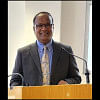
 For all latest news, follow The Daily Star's Google News channel.
For all latest news, follow The Daily Star's Google News channel. 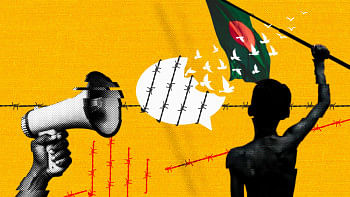
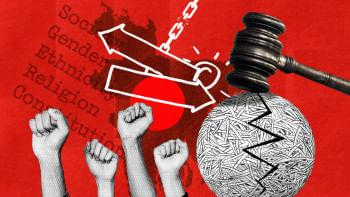
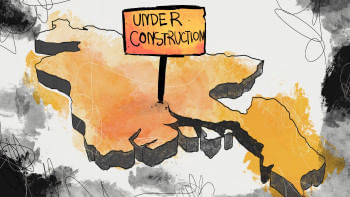



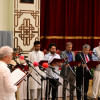





Comments